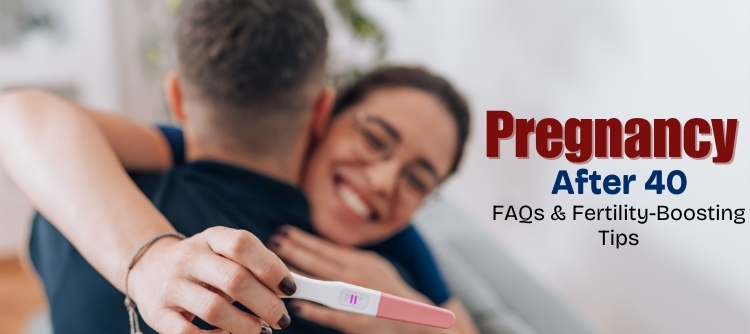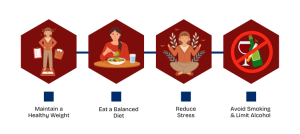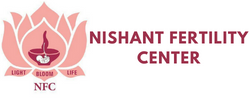Pregnancy After 40: FAQs & Fertility-Boosting Tips

For many women, the desire to have children doesn’t always align with the timing of their fertility peak. If you’re considering pregnancy at 40, understanding your fertility health is crucial. Female infertility treatment in Jaipur has advanced over the years, offering multiple options for those who want to become mothers later in life. Below, we answer some of the most common questions about fertility at 40 and provide tips to optimize your chances of a healthy pregnancy.
1. Is It Possible to Get Pregnant at 40?
Yes, it is possible to get pregnant at 40, but fertility naturally declines as women age. Both the quantity and quality of eggs start to diminish around this period. This makes it more difficult to conceive. However, many women are able to conceive with the right lifestyle changes and medical assistance.
2. What Are the Challenges of Getting Pregnant at 40?
As women age, the chances of experiencing conditions such as endometriosis, fibroids, or polycystic ovary syndrome (PCOS) increase. These can contribute to female infertility. Furthermore, the risk of chromosomal abnormalities in the baby, such as Down syndrome, increases with age. These factors make it essential to seek proper guidance and monitoring from fertility specialists.
3. How Can You Optimize Fertility at 40?
You can increase your fertility in a number of ways:
• Maintain a Healthy Weight: Ovulation and hormone levels might be impacted by being underweight or overweight. Maintain a healthy weight by eating a balanced diet and doing frequent exercise.
• Eat a Balanced Diet: Prioritise foods high in nutrients, such as whole grains, fruits, vegetables, lean meats, and healthy fats. Ensure you’re getting adequate folic acid to support a healthy pregnancy.
• Reduce Stress: Chronic stress can affect fertility by disrupting hormone production. Try mindfulness practices, yoga, and other relaxation techniques to manage stress effectively.
• Avoid Smoking and Limit Alcohol: Both smoking and excessive alcohol consumption can damage egg quality and reduce fertility.

4. What Fertility Treatments Are Available for Women Over 40?
If natural conception proves difficult, there are several fertility treatments available, including in vitro fertilization (IVF). IVF can be particularly helpful for women over 40 as it allows doctors to work directly with embryos to increase the chances of a successful pregnancy. Additionally, egg freezing may be an option if you are considering delaying pregnancy.
5. When Should You Seek Help from a Fertility Specialist?
If you’re unable to conceive after six months of trying, or if you’re over 35, it may be time to consult with a fertility specialist. An expert will assess your reproductive health, run necessary tests, and offer appropriate treatment options. Female infertility treatment in Jaipur has seen considerable advancements, offering more personalized and effective solutions for women looking to conceive at an older age.
6. What Are the Success Rates of Getting Pregnant at 40?
Success rates vary based on various factors, including the woman’s overall health, the quality of eggs, and the fertility treatment used. Typically, women in their 40s have a lower success rate with treatments like IVF, but many women successfully conceive with the help of advanced reproductive technologies.
Related- IVF for Older Women: Challenges and Success Strategies
Conclusion
While pregnancy at 40 presents its challenges, it’s important to know that there are various ways to optimize fertility and increase your chances of conceiving. By maintaining a healthy lifestyle, seeking fertility treatments, and working closely with fertility specialists, you can take steps toward realizing your dream of becoming a parent. If you are considering IVF, consult with experts at an IVF centre in Jaipur to explore your options.
